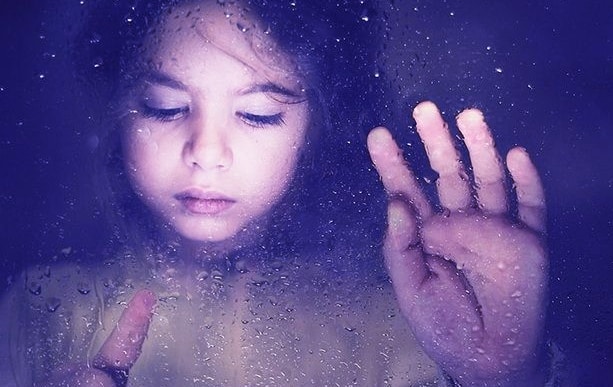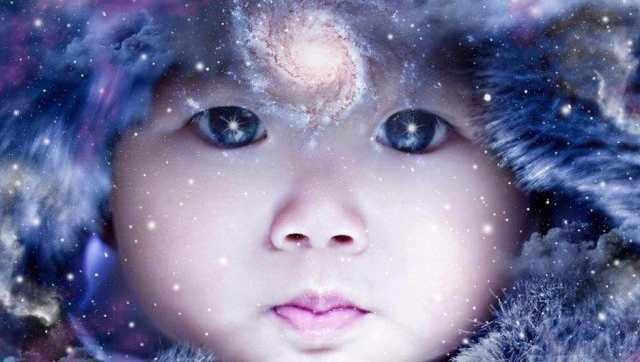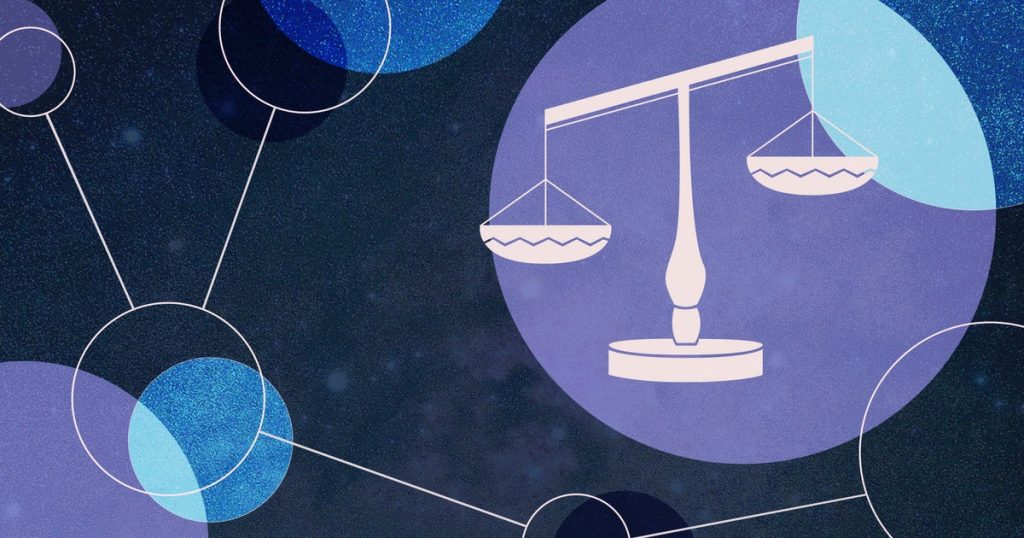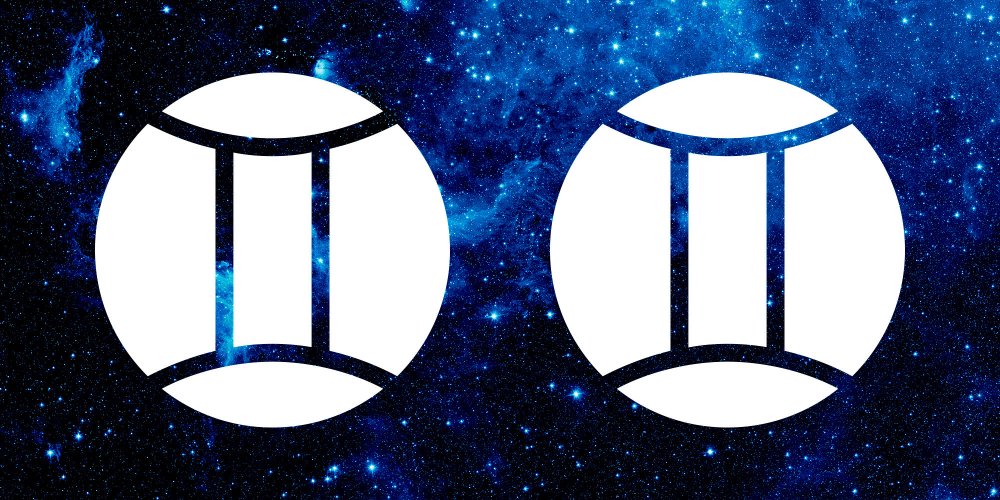Have you ever heard of indigo children? It’s a fascinating theory that there are children with very specific characteristics who came into the world with very specific purposes. But who exactly are these indigo children, and how do you recognize them?
Summary
What is an indigo child?
The term Indigo was coined in 1982 by Nancy Ann Tappe, a parapsychologist who developed a technique to classify people’s personalities based on the color of their aura. That of the special children of the new millennium would be indigo, a color that lies between blue and violet.
On the basis of this parapsychological theory, the indigo children, also defined as the children of the stars, would be individuals with very particular characteristics from an early age and who, most of the time, already very early on, are aware of the fate that befalls them. waits in this world. “New children for a new Earth” expresses the concept of the indigo child well. These beings would have arrived en masse to unleash the old certainties of a world to be rebuilt. Thanks to a new, more conscious humanity and, of course, thanks to the love which these children particularly need, and which they also know how to give, humanity would slowly pass to a new stage of its evolution.
Most indigo children would be very difficult to manage, as they would not agree to conform to the rules of upbringing and lifestyle imposed by our times. In fact, they would have come to dismantle what is old today, to open the field to a new era. It is therefore not always easy to take care of an indigo child, especially in social contexts, where these little ones would have attention or hyperactivity disorders and would be immediately noticed as unconventional, often uncomfortable voices. .
Indigo children are born wearing their divine gifts for all to see. Many are budding philosophers. They will be scientists, inventors, artists with innate talent. However, our society, which is still based on the old energy, tends to minimize their strengths. Many of these children are mistaken for children with “learning disabilities” and many more are currently being destroyed by the public education system.
Theories that these children want to be the protagonists of a new era say that indigos are evolved spirits, very self-aware and often know how to pick up on the thoughts and emotions of those around them. Babies with these characteristics are said to have been born as early as the 60s and 70s, with a clearly visible increase from the 80s to today. In fact, there is currently talk of a new evolution of indigo children. Newborn babies are called crystal or rainbow children (often children of indigo children) and they have different characteristics, although they follow in the footsteps of those who came before them to promote a change of heading around the world.
An indigo child would therefore be an improved plan of humanity. They would be gifted souls, with a clear mission: to challenge and change reality. Beyond psychic awareness, they are highly driven and creative with a perception that sees through established societal norms. Old Souls, their mission is to shake up the modern world to pave the way for future generations to create more peace and harmony for all.
It should be clarified that the term « indigo child » is not accepted by psychology and psychiatry, but is generally used in the current New Age to designate a generation which is distinguished because it is at a higher level of human evolution. Those who defend this hypothesis claim that this generation of children presents a superior development from the social, psychological and spiritual point of view. Basically, these little ones develop a series of psychological and cognitive characteristics that are above average and show more mature and assertive behavior patterns than the rest. These are children who develop earlier than their peers and who show superior abilities in certain areas.
The characteristics of indigo children

 An Indigo child displays a new and unusual set of psychological attributes and a pattern of behavior that has yet to be documented. This model has common and unique factors that suggest that one should change the way one treats and raises these children in order to achieve an appropriate balance. Ignoring these new patterns of behavior creates imbalance and great frustration. Neurologist Felipe Cors describes Indigos as gentle, extremely sensitive, more emotionally mature people with a great ability to put themselves in other people’s shoes.
An Indigo child displays a new and unusual set of psychological attributes and a pattern of behavior that has yet to be documented. This model has common and unique factors that suggest that one should change the way one treats and raises these children in order to achieve an appropriate balance. Ignoring these new patterns of behavior creates imbalance and great frustration. Neurologist Felipe Cors describes Indigos as gentle, extremely sensitive, more emotionally mature people with a great ability to put themselves in other people’s shoes.
Indigo children are characterized by strong self-esteem and a clear sense of themselves. They have difficulty with discipline and authority, they refuse to follow orders or directions, they are bored with assigned tasks. They lack patience, are generally anti-conformist and do not respond to guilt mechanisms.
They are often thought to have attention deficit/hyperactivity disorder, but indigo children can focus whenever they want. It’s easy to distract them, as they can do multiple things at once. They have great empathy, they develop abstract thinking from an early age. They are quite creative, gifted, talented and very intelligent. They are dreamers and visionaries, they have a strong intuition. They often express anger and need our support to discover themselves.
The indigo children are here to change the world, to help us live in more harmony and peace with each other, and to raise the vibrations of the planet.
According to psychologists, parents do not have to recognize an indigo child, but raise him with love, respect, firmness, respecting his abilities and facilitating the development of others.
The 4 types of indigo child
According to theories, there are 4 types of indigo children: the humanist, the conceptual, the artist and the interdimensional
The indigo child: the humanist
It is these children who will work in contact with people, for example doctors and teachers, and who will therefore make themselves available to others. They are the most sociable type and usually hyperactive. Children, they want a thousand toys, but they go from one to another.
The indigo child: the conceptual
They are very design children who will therefore prefer jobs as an engineer or architect. Generally they are athletic, they are the most at risk of addiction, especially in adolescence. They try to control their parents more than other indigo types.
The indigo child: the artist
The most sensitive and fragile indigo but at the same time the creative one par excellence. He approaches all things in life in a creative and artistic way, although it is difficult to identify his true preferences because he moves from one thing to another with great ease, being a little bored and with a great desire to discover everything.
The Indigo Child: The Interdimensional
The strongest indigos. From a very young age, around 2 years old, they know very well what their task is and they strive to do everything on their own, if someone intervenes, they are able to answer: “I know. I know how to do it. Leave me alone « . They are the ones who will revolutionize philosophies and religions.
The qualities that distinguish an indigo child
These children are not only characterized by an indigo aura, but also have certain characteristics that make them special:
- They have a great creative capacity and are very resourceful.
- They have an above average IQ.
- They instinctively develop special talents.
- They solve school or daily life problems very easily.
- They are very restless and have a lot of energy, in fact they are often hyperactive children.
- They show particular aptitudes for new technologies.
- They are emotionally mature and have high self-esteem.
- They get frustrated when they have to follow strict, authoritarian rules.
- Sometimes they show rebellious behavior.
- Sometimes they have behavioral issues caused by their rebellion and non-compliance.
- They develop great sensitivity and empathy.
- They are very sensitive, so they often suffer from allergies.
- They are very open and express their needs without difficulty.
- They focus their attention on issues that interest them, but easily lose focus when the topic does not interest them.
- They often feel lonely and misunderstood because they have trouble finding other children like them.
How to recognize an indigo child?

 Based on this theory, how to recognize an indigo child? There are many characteristics that make these beings special, here are the ones that we find most frequently:
Based on this theory, how to recognize an indigo child? There are many characteristics that make these beings special, here are the ones that we find most frequently:
– the indigo child is uncomfortable in social contexts in which a voice outside the choir is heard
– the indigo child has a deep penetrating gaze and a very strong sense of royalty
– the indigo child knows who he is and he is the one who says he is special to his family
– the indigo child refuses to follow rules and authorities and does not tolerate punishment or compromise
– the indigo child is stubborn and persistent
– the indigo child is very creative, dreams and designs very big
– the indigo child is hypersensitive
– the indigo child clearly says what he wants and what he needs
– the indigo child has facilities for learning
– the indigo child is hyperactive and easily bored
– the indigo child has a particular diet (skips meals, often refuses to eat meat or is intolerant to certain foods)
– the indigo child has special and extra-sensory faculties
Raising these special children is a great privilege: the little indigos would need a lot of love, but it is also important to learn to accept them for who they are, to respect their being, to find the key to communicating better with them. in order to teach them some discipline as well.
How to stimulate an indigo child?
Raising indigo children is not an easy task. My parents must not neglect their academic training because, as they tend to have above average IQs, what they learn in school is usually not enough for them and they must receive a more complete education. An excellent alternative to quench their thirst for knowledge is to offer them new educational opportunities, workshops and extracurricular courses.
It is also important for parents to take steps to prevent the little one from becoming a rebellious child. The indigo child may not like to follow the rules, but it is important that he learns to follow the rules and that he has clear and precise limits. A good strategy to prevent these boundaries from becoming a problem is to consider her opinion and explain why you are making the rules.
Also, parents should not neglect the emotional needs of these children, they should let them know that they can be trusted. It is important that they listen to them and transmit confidence and serenity to them because if these little ones can be very mature for their age, in the end they are only children.
Do you think you are or have an indigo child?




